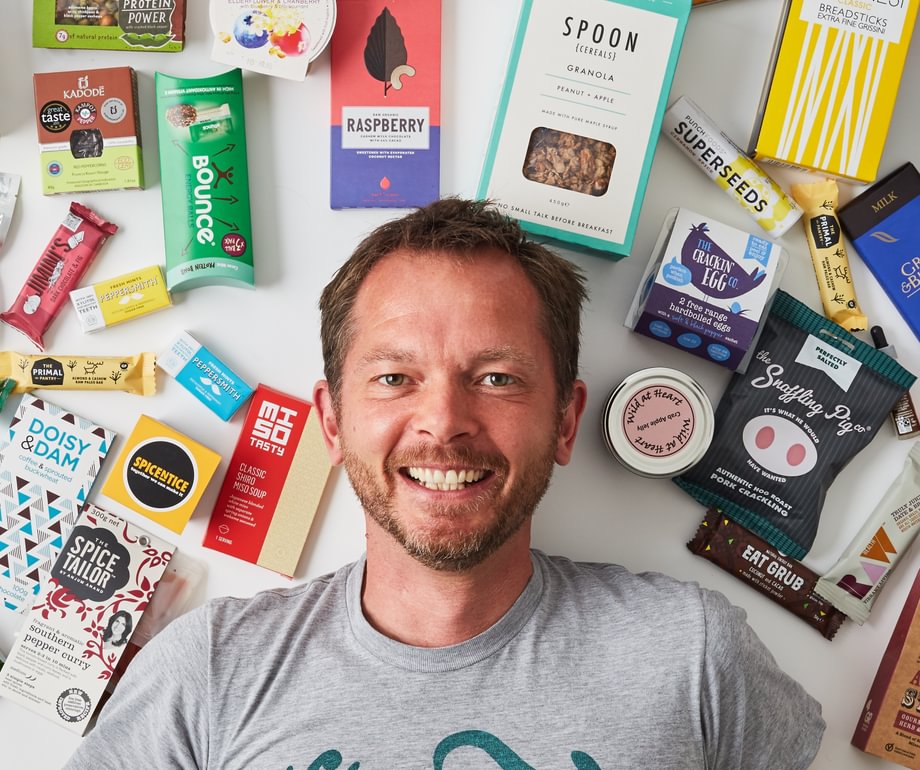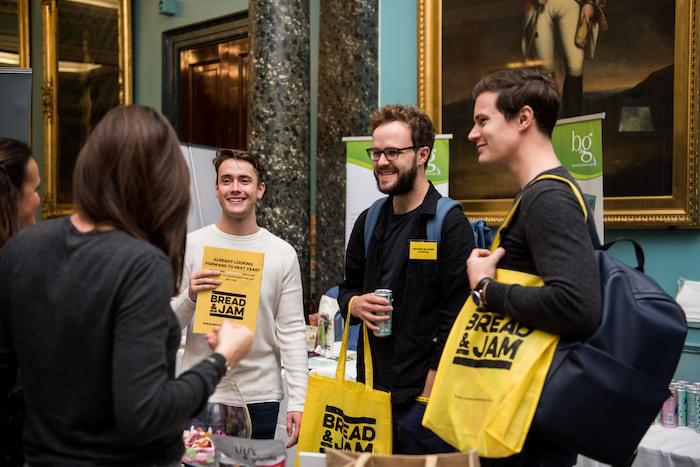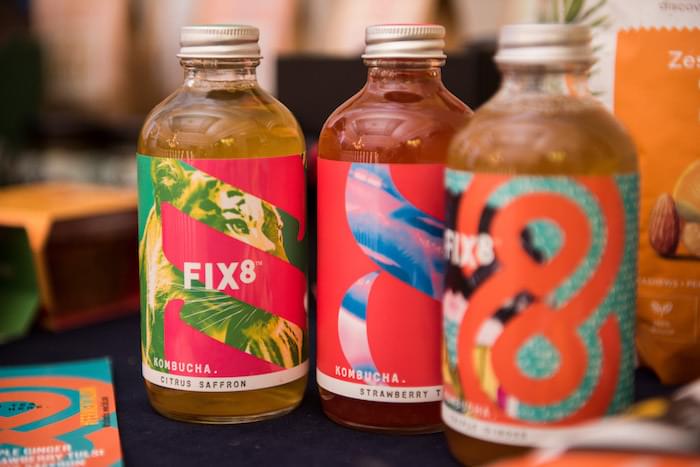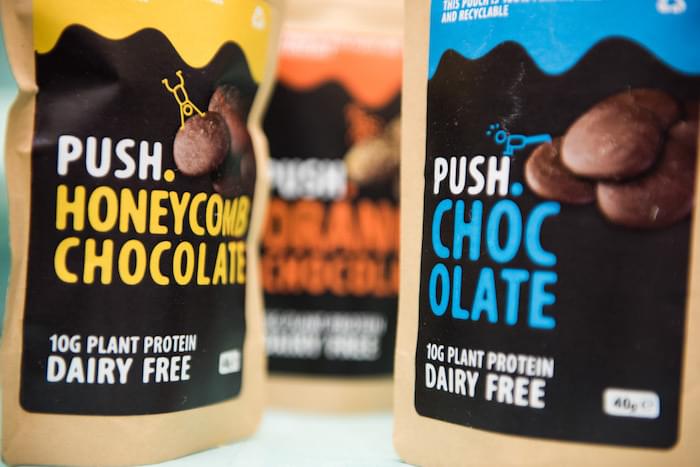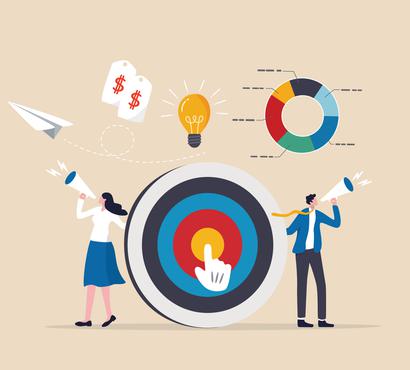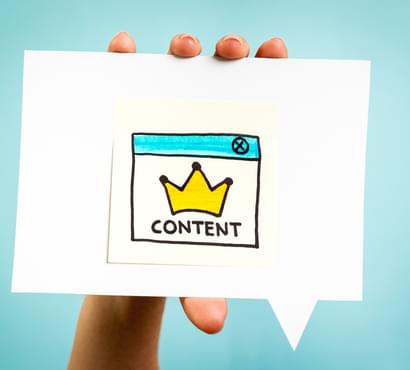First up, and very fitting for the month of January, famed for its focus on food and fitness, is Jason Gibb, Founder of Bread and Jam Festival - an event aimed at food startups to give them the tools they need to succeed.
Take it away, Jason...
Can you tell us a bit about your role and your industry background?
I started off in food when I quit my job as a TV producer in Hollywood and my wife (also a TV producer) and I decided to make something more wholesome than reality shows. We bought an abandoned olive grove on the east coast of Italy and launched an olive oil business. We had no knowledge of the food industry, of starting businesses and only rudimentary Italian. But, we found the best people to show us how to prune, pick and press olives and built a successful business selling our oil to high end retailers around the world like Harrods, Selfridges and Waitrose, as well as selling direct to consumers.
I sold the business after 10 years and now help other entrepreneurs start and grow their food and drink businesses through Bread & Jam, and I’m also starting a plant based brand called Unruly. If you don’t know Bread & Jam runs virtual events like workshops, panels, bootcamps and conferences aimed at giving start-ups the tools they need to succeed. We also have a Facebook group called the FoodHub with over 10k food and drink entrepreneurs on there, supporting each other.
What is it about food and drink start ups that interests you most?
The food and drink start up community seems to attract a certain type of person – someone who is collaborative and willing to share their hard-earned experiences, contacts and insights. So it’s an extraordinary industry to work in, brimming with inspiring people. But what interests me in particular at the moment is how the food start-up world can impact the planet. Our community is at the cutting-edge of new trends that we will see go mainstream, and that is why we are running a number of workshops around the subject of sustainability. The focus of my plant-based start-up, Unruly, is to make it easy for people to eat less animal derived foods, which I think is the single most impactful thing we can do as individuals if we want to tackle the climate crisis.
Covid-19 has had huge implications for many industries, what do you consider to be the most significant changes to the food and beverage industry over the last year- specifically the impact for ‘at home’ food and retail (rather than dining-in)?
It’s been a ‘tale of two cities’, with some businesses seeing sales go through the roof whilst others have had the rug pulled from under their feet. When you start up a food and drink business a key objective is to have a broad spectrum of customers, or in other words multiple routes to market. This means you don’t rely too much on one customer and so if that customer disappears you are resilient to it. Businesses that were relying on selling into foodservice (restaurants, pubs, hotels, gyms, schools etc) have obviously suffered greatly. Businesses selling into retail (i.e. supermarkets) have done okay, and businesses selling direct to consumer, online, have boomed.
Within the categories of products we’ve also seen a mixed picture in terms of success. Baking goods, ingredients for scratch cooking, and products that focus on health and immunity are the winners. Impulse and foods on-the-go are the obvious losers.
But the start-up and challenger brand community is characterised by its ability to be flexible and nimble. And this has been a big advantage over mid-sized and larger brands. So pretty much every brand I know has focused on online (if they weren’t already) and tweaked their proposition to be more suitable for consumption in the home. And where the consumer pre-lockdown didn’t want to buy online from multiple small vendors, they are now visiting their website, creating accounts, buying and signing up to newsletters. And these new relationships that have been built up between authentic brands and interested consumers will only continue to flourish.
How might the pandemic have affected the food trends we will see in 2021?
As people are more in touch with the health of both the planet and themselves, the plant-based juggernaut will plough on, gaining momentum.
The double-whammy of COVID and Brexit will have a big impact on consumer pockets and they will be looking for affordable ways to treat themselves, which is an opportunity for challenger brands. Back to personal health – immunity boosting, gut health type products will continue to grow, and the no and low alcohol trends will accelerate.
What trends will you be keeping a close eye on in 2021?
I’ll be keeping my eye on stuff that you can do at home and on the cheap – like foraging and fermenting and pickling and preserving.
What’s the biggest challenge(s) in food and beverage right now?
Apart for the obvious challenges of Brexit and a global pandemic, as brands throw everything at eComm it’s going to be increasingly hard to cut through the noise and get the consumer’s attention. Only the most cunning and innovative will reap the benefits.
How central do you think sustainability will continue to be after 2020 - will the last year make people more conscious of what they buy, or will convenience win over?
Sustainability will be a major driving force, but it will need to offer convenience to succeed.
What’s the number one piece of advice you were given when starting out?
Make sure that you have a product that enough people want to buy. It sounds insanely obvious but it’s one of the top three reasons why food and drink start-ups fail. Too many people come into the industry fixated on a specific product, whether it’s their Gran’s marmalade recipe or a pistachio cantucci they discovered in Venice. It’s a good starting point but be prepared to radically change it, if it won’t sell.
Fancy a good ol' chat about the values of marketing to your business?
Drop Us a LinePost by

Amy joined in 2014 to set up our Content department. She now heads up a growing Brand and Content team, utilising over 13 years’ experience to deliver brand awareness through targeted, multi-channel copy. As well as engaging content for websites and blogs, Amy delivers PR strategies and tone of voice exploration, helping clients to communicate the purpose and values of their brand with maximum impact.
Project
